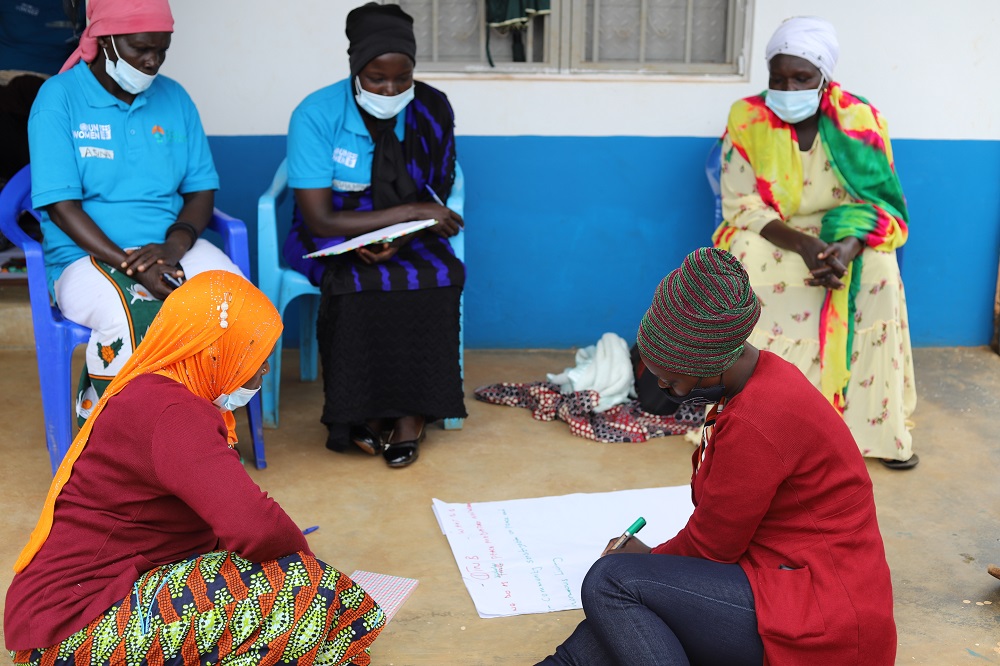The Peace Centre concluded a 5 days refresher training from 5th to 10 August on conflict prevention and conflict transformation for 25 Women Peace Mediators, 30 Conflict Monitors and Analysts in Yumbe District. Since 2019, the Peace Centre has trained over 400 mediators, Conflict analysts and monitors at the local and national levels.
Key topics during the training included democracy, women and governance, understanding conflict and conflict analysis tools. The training also covered conflict early warning and early response, peacebuilding and conflict prevention mechanisms, UN Security Council Resolution 1325, advocacy among others. The training equipped them with information to mediate conflict and seek relevant early response and influence peacebuilding in Yumbe.
Throughout the training, participants reflected on their peacebuilding work and strategized on how best they can contribute to conflict early warning and early response in their communities.

Mauzu Shwali, a Peace Mediator shares some of their interventions in the community. They have mediated, referred for protection, judicial or medical response gender-based violence incidents, land disputes, political conflicts, tensions between refugees and hosts communities.
This training is part of the Peace Centre’s work promoting Women’s Participation in Conflict Prevention in South Sudan and Uganda which seeks to build the capacity of women to mitigate conflict and sustain peace. This is done by facilitating the creation of women mediator networks, training women as monitors and analysts using national conflict indicators revised to include a gender perspective, to produce reports and call for early responses by county-level peace committees and national actors. The women peace mediators, monitors and analysts are community-based volunteers that The Peace Centre works with to promote peace in their respective host and refugee communities.
This project will also strengthen the capacity of local mechanisms to formally engage with established women mediators’ networks and respond to early warning issues, facilitating links to the national Conflict Early Warning and Early Response Unit (CEWERU).



